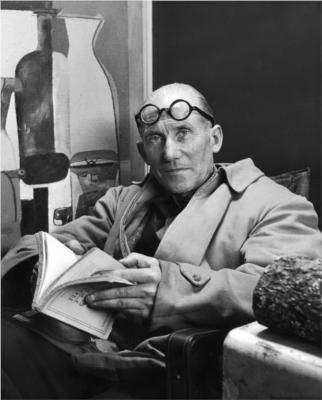October 6: Enactment of The Indian Penal Code
Do you know who designed the Architect of Chandigarh City? Take a look at the blog for more details.
Rules and Regulations play a vital role in the history of the whole globe. Today in this article, we will discuss The Indian Penal Code. The article will answer questions like how it emerged, who made it, and from where the idea came for this law criteria.
The Indian Penal Code is the official criminal code of the Indian Republic. It is a complete code intended to cover all aspects of criminal law. It was enacted on 6th October 1862, in British Presidencies. Notably, the Princely states had their own courts and legal systems.
The first draft of the Indian Penal Code was prepared by the First Law Commission under the Chairmanship of Thomas Babington Macaulay. The idea of the draft was taken by the codification of the law of England and with few elements from the Napoleonic Code and Louisiana Civil Code of 1825. It was presented before the Governor-General in council in the year 1837, but subsequent revisions and amendments took two more decades. The complete drafting of the code was done in 1850 and presented to the Legislative Council in 1856. It was delayed being placed on the statute book of British India due to the Indian Revolt of 1857.
(The logo of Imperial Legislative Council)
After undergoing many revisions and amendments, the code came into force on January 1, 1860, by Barnes Peacock who was the first Chief Justice of the Calcutta High Court. Before the emergence of the British, there was a penal law known as Mohammedan law which prevailed
in most parts of India. For the first few years of its administration, the East India Company did not interfere with the criminal law of the country. Although in 1772, during the administration of Warren Hastings, the Company for the first time interfered, and from time to time, the British Government amended the Mohammedan law. Yet in 1862, when the Indian Penal Code came into existence, the Mohammedan law was the only basis of the criminal law excepting in the presidency towns. The era of the Muslim criminal law in India extended for a considerable period and has even supplied many acts for the world list of Indian law.
Here is the link for the brief Amendments – The Sections of The Indian Penal Code
IPC as a figure has flourished over the last 160 years, which speaks volumes about its effectiveness as a penal code of high stature. However, over the past few years, it has not been able to deal with provisions like the Sedition. The Malimath Committee report while advocating criminal justice reforms has provided the Parliament with an opportunity to recondition the Code and laws. It has been 17 years since the submission of the report and no concrete steps have been taken in this respect.
Even though the IPC has been anywise amended more than 75 times, no comprehensive revision has been undertaken despite the 42nd report of the law commission in 1971 recommending it — the amendment bills of 1971 and 1978 lapsed due to the dissolution of the Lok Sabha. As such it has undergone many amendments that have been ad hoc and reactive.
Read more: October 5: A Great Day in the History of Portugal
Other Events of this Day
1893 – Birth Anniversary of Meghnad Saha

(Meghnad Saha Ji)
Meghnad Saha was an Indian scientist and astrophysicist who was born on 6th October 1893 in Dhaka. He developed the Saha ionization equation which describes chemical and physical conditions in stars. His work allowed astronomers to accurately relate the spectral classes of stars to their actual temperatures. He was also elected as a member of the Parliament of India in 1952. His life journey was praised by naming a Nobel Prize by his name that is the Meghnad Saha Award which depicts the Best Indian Science Award.
1927 – First Talkie Motion Picture
The legendary first sound film of the world came on the screen on 6th October 1927 in America. Named as The Jazz Singer it was directed by Richard Fleischer and produced by Jerry Leider. The film tells the story of a young singer who is torn between tradition and pursuing his dreams as a pop singer.
1887 – Birth Anniversary of Le Corbusier
 (
(
Mr. Le Corbusier
Le Corbusier, was a Swiss-French architect, designer, urban planner, and one of the pioneers of what is now we regard as modern architecture. He was born on 6th October 1887, in Switzerland and became a French citizen in 1930. Le Corbusier prepared the master plan for the city of Chandigarh in India, and contributed specific designs for several buildings in Chandigarh and Haryana and mostly the government buildings.
Check our Instagram : Ownguru
Facebook : Ownguru
If you have an interesting write-up or any suggestion, write to us at ownguru@gmail.com

